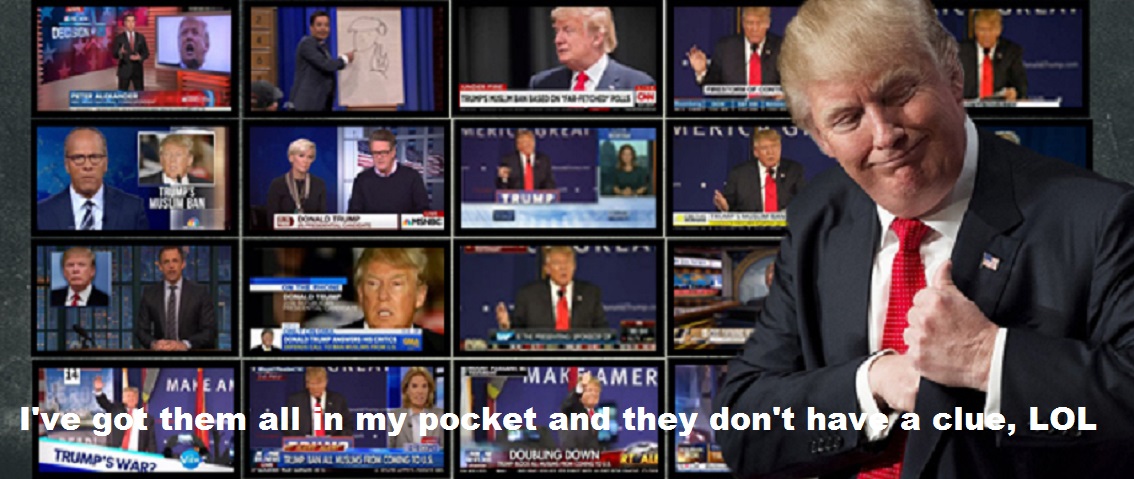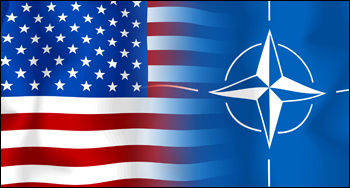
Commercialized Media and American Misunderstanding of the World
(China) on 22 October 2016
by Qiu Zhibo (link to original)
The trend toward entertainment and the commercial in political media has greatly limited domestic mass knowledge of international policy, pushing international news to the margins. Within such a “novel” media environment, people either deepen their solidified notions of foreign affairs or become all the more indifferent and ignorant. And from where this entertainment and commercial trend is centered — America — we can examine four factors that help us understand this phenomenon.
First, according to a survey in News Media Research, market-oriented media organizations tend to decrease coverage of international affairs. Quality international reporting usually requires dispatching journalists with ample experience and knowledge of foreign policy abroad, making the base cost of foreign news collection and reporting high. Since viewers tend to pay less attention to international issues, American media is thus decreasing the extent of such coverage and expenditure under pressure from business interests.
According to this author’s own investigation, this has indeed led to a drop in the quality of international reporting for a portion of American media, such that it has fallen into an ossified format of reporting. For instance, when covering major current events in Chinese politics, many mainstream Western news outlets’ funds and personnel are restricted; they often do not investigate on-the-ground, solely filtering antiquated images from old photo archives. This greatly influences the opinion of China for those Americans who rely on these media to listen to the news. Moreover, in policy analysis, the number of “China expert”-type reporters is dropping. Facing Chinese policy documents of lengths of several tens of pages, it is difficult for reporters with restrictions on their time and language skills to produce accurate and timely analysis of government publications. They often rely on limited English translations and other media reports, also greatly lowering the depth of the people’s knowledge of policy. Sometimes reports fall into a vicious cycle of quoting out of context and making groundless accusations.
Second, from a perspective of consumer psychology and intellectual habit, American audiences have long relied on sarcastic, satirical and exaggerative talk shows to develop views on both domestic and foreign news. Jon Stewart, the former host of America’s most popular political talk show, “The Daily Show,” has long been an opinion leader for the United States public, repeatedly organizing large political meetings and debates. “The Daily Show” won an Emmy every year for 10 straight years, 2003 to 2012. The succeeding host, Trevor Noah, exclaimed that it was not until he took on the responsibility that he realized [Jon’s] job was not just to crack jokes, but also to educate the American public. He was shocked to discover that many Americans are accustomed to learning the news through 20- or 30-minute political entertainment programs. When youth discuss contemporary affairs, they are often fond of using talk show hosts’ segments as bases for their own opinions.
In addition, in the face of the excessive “entertainmentization” of news media, the clichéd political professional class becomes all the more insipid for Americans. This is a very potent point for those Americans already fed up with “pay-to-play politics.” To a certain extent, political television shows like “House of Cards” have further led to American distrust and suspicion of “professional” politicians.
Third, Americans rely excessively on single news channels to learn about international news, and some seldom listen to media from other countries, let alone anything representing the views of non-allies. The onslaught of commercialization and informatization has turned social media into a major news source. According to the latest statistics by the Pew Research Center, 62 percent of American adults gather news through social media, three-fourths of them mainly from Facebook. The research further shows that of all who rely on social media for their news, 64 percent only utilize a single website, chiefly Facebook, 25 percent use two websites, and only 10 percent of people use multiple platforms or channels to view the news. In the long run, such myopic, fragmented and slanted coverage will deprive the people of knowledge of complicated international affairs.
Fourth, under Hollywood’s offensive, the American public has grown to believe in those undefeatable superheroes who can win “dramatically” in the end. This has led some Americans to view foreign affairs as black-or-white matters, where one is either friend or foe, normally relying on the simple logic of resolution through force or isolationism. Moreover, the portrayal of foreign countries and their people in American film lends itself to such Facebook-esque, [stereotyped] labeling trends, leading to general misunderstanding.
Besides this, American elementary education does not give due emphasis to a general knowledge of global history. This causes many without high levels of education to lack knowledge of foreign countries and their institutions, culture and societies. The loss of historical teaching has led to some American youth to lose their respect, deference and sympathy for other nations.
These factors all reveal the result of the subtle dangers brought by the entertainmentization and commercialization of the news media. That Trump can so rise above the others in the Republican primaries is a prime example worthy of consideration.
Trump himself is a popular entertainer, having produced the popular TV series “The Apprentice,” repeatedly setting new viewing records in the market. Trump, who knows well the commercial media and mass consumer psychology, used the same method for pushing new products to package himself as the most able presidential candidate. An accurate characterization of the market is not the same as comparing the “products” that are politicians. Catchy slogans, ubiquitous Trump products, endlessly repeated broadcasts — every bit helps put [Trump’s] “product” on the market.
Though their politics differ, American media pressured by business interests strive for clicks, views and advertising revenue, and so still welcome the consumerist mindset of the people, giving Trump overwhelming coverage. They are entering a trap from which they cannot escape.
If Trump is victorious in the November election, he surely must thank the American media and its commercialization and the entertainment-minded audiences for giving him a shoulder up on the competition.
The author is stationed in America working for an international organization.


